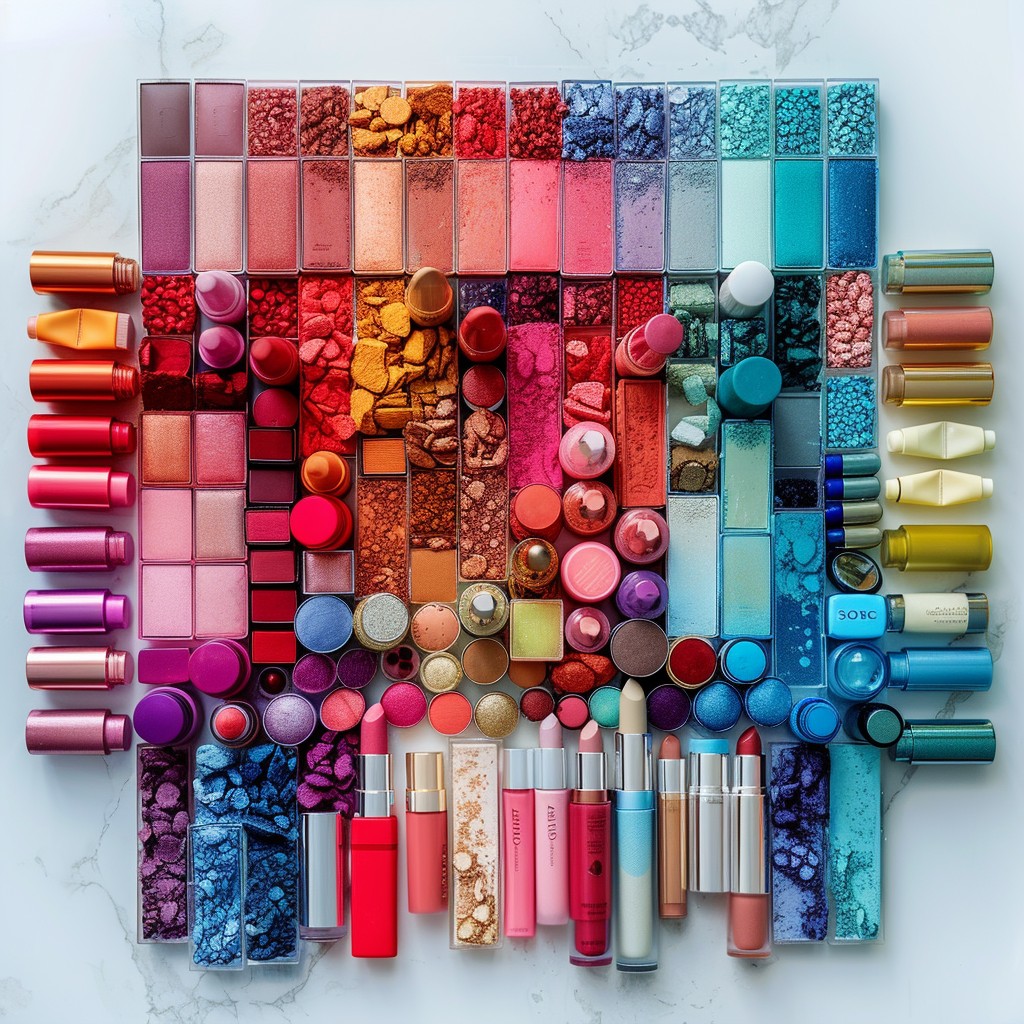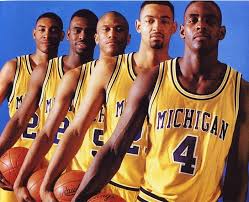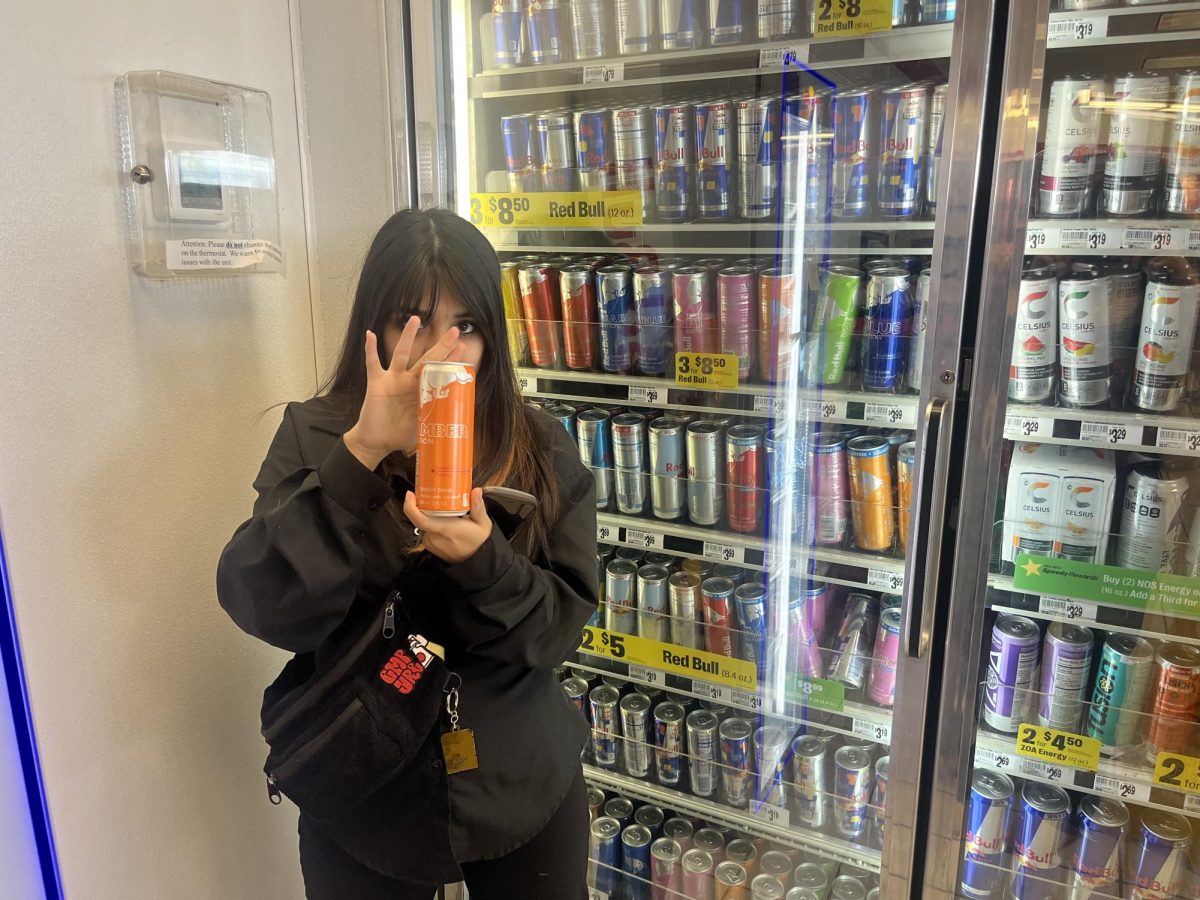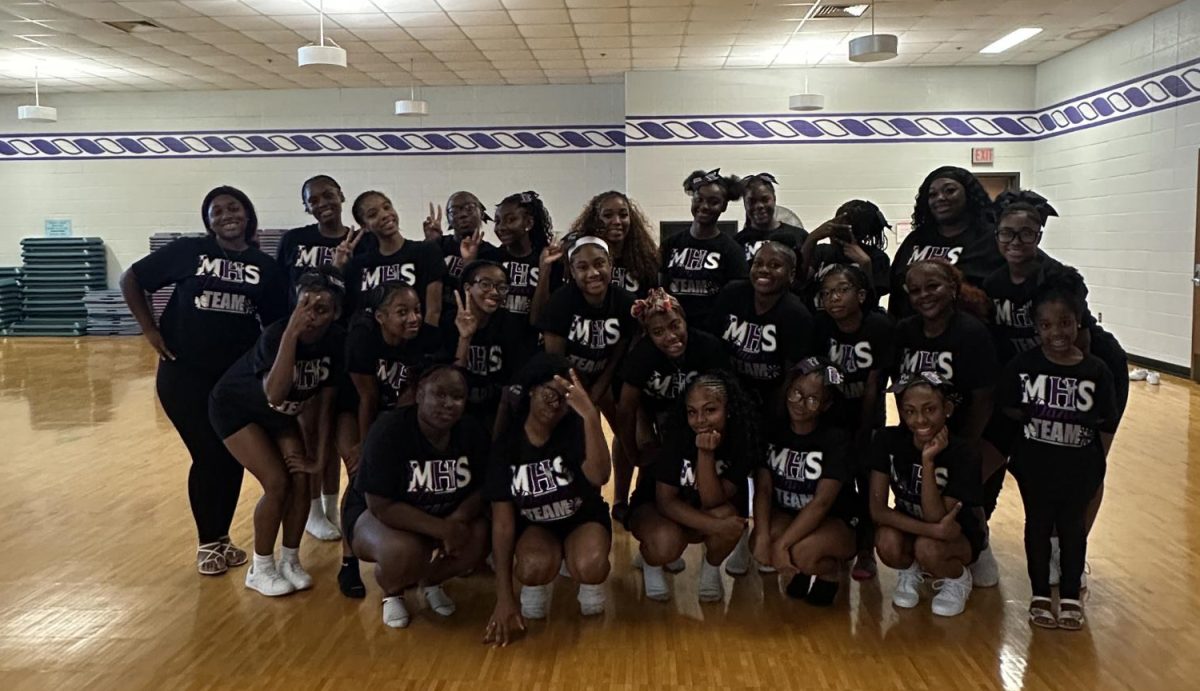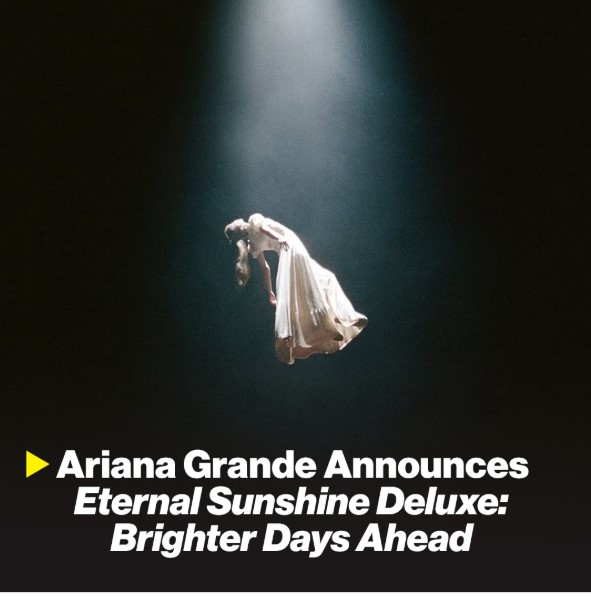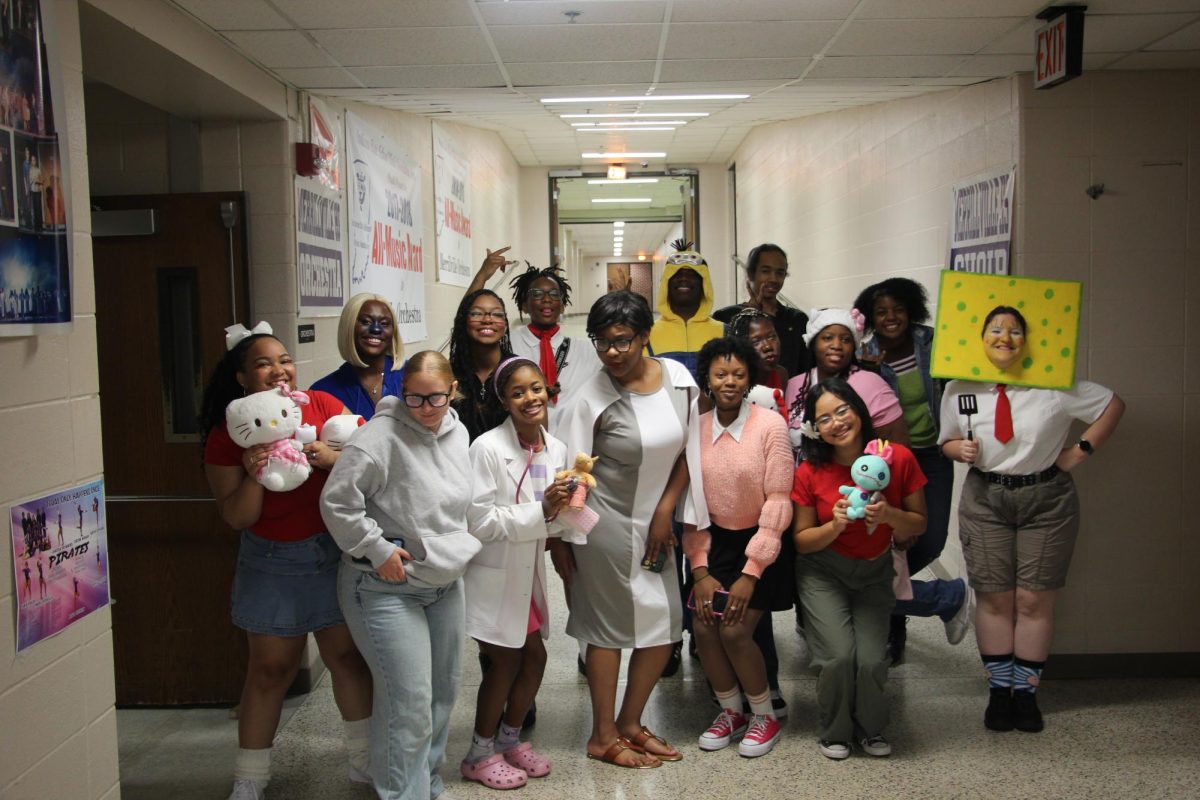Just walking into school you can spot dozens of students carrying coffee or energy drinks. Some of these drinks contain more milligrams of caffeine than the recommended daily limit for teenagers. Students are unknowingly putting themselves at serious risk of heart attacks, high blood sugar, heightened anxiety, dehydration, and many more side effects.
The pressure of being in school leads seniors like Jaleeya Reyes and Elani Alvarez to regularly consume energy drinks.
Jaleeya relies on energy drinks to get her through the day. She has to balance school and work, which can lead to a lack of sleep.
“So when I wake up I’m on like four hours of sleep, so I need the energy,” she said.
Elani has early morning practice, so for her, a Red Bull has become a part of her daily routine.
“So I just need a little kick start, I guess, to start my day,” Elani said.
Both students rely on energy drinks for the same reason, but over time, caffeine stops working the same.
“Coffee doesn’t really seem to work for me as well anymore because I think I built up a tolerance to it because I drank it so much,” Jaleeya said.
Caffeine only blocks the adenosine receptors in your brain, which is what makes you feel sleepiness. When the body consumes caffeine regularly, the body adapts and produces more adenosine. Eventually, the same energy drink every day won’t cause the same feeling as it once did.
“Now I’m starting to get a tolerance for Red Bull,” Jaleeya said. “The more I drink the more I survive the day.”
The difference between Elani and Jaleeya is the amount of caffeine they consume. The recommended milligrams of caffeine per day a teen should drink is 100mg.
“I usually drink one a day,” Elani said.
On the other hand, Jaleeya drinks on average two Red Bulls a day. A Red Bull has 77mg-100mg in each can. This would result in her consuming almost twice as much the recommended amount. This can cause harmful side effects and even long term health issues.
“It increases my anxiety,” Jaleey said, “I’m not going to lie, by my second Red Bull, my anxiety is at its peak”.
For Elani, her side effects are different.
“Sometimes I do get a rush of energy and it just feels good to not feel tired,” Elani said.
The rush of energy comes from the body’s increased amount of adrenaline that comes after consuming caffeine. One of the downsides to a higher adrenaline is that it also leads to heightened anxiety. While caffeine does show effects of working, it is damaging these teens’ health.
When the caffeine eventually wears off, it can lead to a caffeine crash.
“The crash is so bad, sometimes I’m really not energized enough by the end of the night to do what I need to,” Jaleeya said, “So then I end up staying late anyways, and then I’m extra tired because of the crash from caffeine.”
Although these students are aware of the negative side effects of caffeine, they will still continue to drink it.
“I suppose long term, I would want to find another method to cope with school and manage the day,” Jaleeya said.



